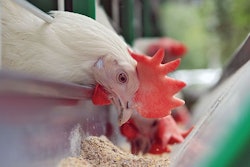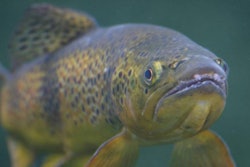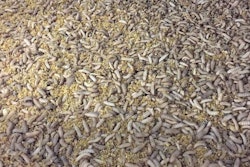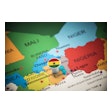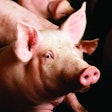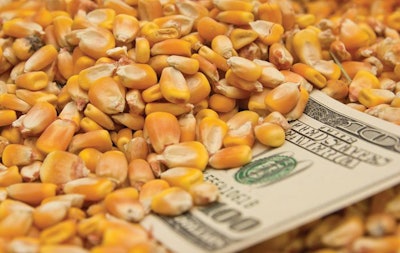
All-vegetable diets for farm animals that are carnivorous (cats and dogs) and omnivorous (pigs and poultry) might sound like a good idea. It is a marvelous concept for people who want to feed their pets the way they eat (vegans, vegetarians), or for those who want to ensure their pork chops or chicken strips come from animals fed vegetables. It all sounds like a good marketing strategy, but are we really thinking ahead?
Perhaps this is our fault for having allowed a number of scandals to happen (not all related to animal-derived ingredients). Or perhaps it is because modern societies are removed from the way food is produced, and they cannot comprehend or do not want to know that animals eat animals. Whatever the cause, I want to bring to your attention six reasons why we should not follow the all-vegetable path for the good of our own industry (animal production, in general, not only the feed industry of which I am but a small part).
1. It is not true to the consumer
Consider that bacteria and yeasts are not vegetables, and most additives, medicines and even some purified nutrients are derived from bacteria and yeasts. In fact, specific bacteria and yeasts are being fed as probiotics and prebiotics to enhance animal health. If we were to be true to an all-vegetable diet, then we would need to remove some of the most valuable ingredients that ensure animals remain healthy and productive. Do we want to do that?
2. It is not true to the animal
Who said that carnivorous and omnivorous animals should not eat animal-derived products? In fact, all animals need some animal-derived products. For example, they need milk (mammals) until they are weaned, and even chicks are born with a part of the yolk still intact in their belly. Also, carnivorous animals cannot handle fiber and starch well; we cannot undo their metabolism, and feeding more fiber and starch jeopardizes their health.
3. What about vitamin B12?
Vitamin B12 is only produced by non-vegetable beings. Ruminants and some other herbivorous monogastrics (rabbits, for example) can cope through their own systems, but all other animals need it from animal-derived products, or from bacteria/yeasts — so back to the No. 1 problem. If we cannot supply vitamin B12 to our animals, and they suffer reduced performance, and then we consume products with less vitamin B12, then we humans will need to eat yeasts to get enough vitamin B12, or take supplements. Irony and hypocrisy combined, you say?
4. Do not drive your customers to decide what animals eat
Yes, food safety and human health is first, but what animals eat after that is the business of nutritionists (and lamentably, politicians in some regions) — not a consumer. If you start down this pathway, then who says that someone else will not start a new marketing movement like “cereals-only”? Wait, this already exists, albeit as a minor idea, but think of the global soy trade and all those farmers who raise protein-rich crops. If they switch to corn and wheat, then fields will be depleted because protein-rich crops enrich fields with nitrogen. Or, we could just use extra chemically produced fertilizers — do consumers want that? And what about the animals who will become so fat and deprived of muscle as genetics depend on high-protein diets? We cannot use feed-grade amino acids, because some are produced by bacteria and yeasts, which are not vegetables. Talk about a dog chasing its tail.
5. What about all these (not so) novel ideas?
The European Union is starting an initiative to use food scraps to feed animals. Nothing new here; the Chinese (ancient times) used to house pigs under their latrines, so food scraps should be OK, right? Not really, if we consider that swill feeding (the feeding of food residues) was banned in Europe not long ago because animal health could not be guaranteed. And what about insect meals? Animals are not to eat animal-derived products, but they are fine consuming insects — which by the way, are animals. Talk about double standards!
6. What about all these animal-derived products?
Let's say we stop feeding animal-derived products to animals. What are we going to do with the immense quantities of by-products? We can burn them, bury them or send them to outer space. All are non-ideal solutions because we will pollute the environment, increase cost of consumable products and send the problem to the next generation, unless, of course, we humans start eating the whole animal.
Think about that last sentence: “we humans … eating … animal.” We (omnivorous mammals, or just humans) can consume animal products, and in fact if we deny the same to our own animals, we must consume even more. So, if we tell our consumers that animals should not eat animals, don’t we tell them indirectly that it is not right for humans to consume animals?
In my opinion, unless you have a second job outside the animal production industry, I think this whole all-vegetable deal is a very bad idea.

